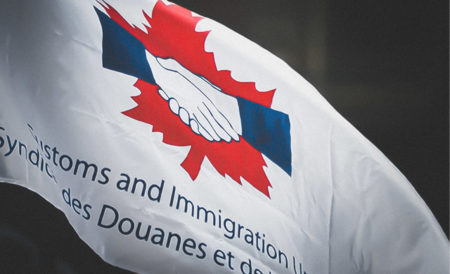On Tuesday, November 21, the CIU National Executive was in Laval, Quebec, to tour the local CBSA Immigration Holding Centre (IHC), following an invitation by the Agency to review ongoing upgrades to these facilities to accommodate higher-risk immigration detainees who will no longer be held in provincial establishments.
While it is too early to fully assess the impact of the upgrade process as a whole due to infrastructure changes still to come, CIU Executive members welcomed this opportunity to familiarize themselves with proposed changes in order to ensure potential safety concerns — both for workers and detainees — are addressed as proactively as possible.
The detention of high-risk individuals in immigration holding facilities is a new direction for the Agency, and CIU is conscious of the impact this can have on our members working in IHCs and as part of Inland Enforcement and Hearings. Our priority is to ensure the health and safety of all involved. While alternatives to detention are central to a modern, more humane immigration system, adequate holding facilities must be available in cases where alternatives to detention are simply not an option due to severe public safety risks, such as violent criminality. It is all the more important for these facilities to prioritize the health and safety of all through proper training, staffing levels, and equipment.
As these changes represent a significant shift for some of our members, we invite our members to review the following information regarding dangerous work should they be asked to perform dangerous tasks for which they’ve not received training.
While any concern regarding these changes should be brought forward to your Branch President and local health and safety representatives, the Agency has made clear that they want to hear from the membership to address questions around changes related to detentions, and we invite you to reach out to Detention-Programs@cbsa-asfc.gc.ca.



